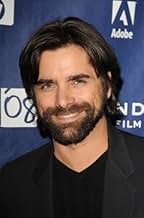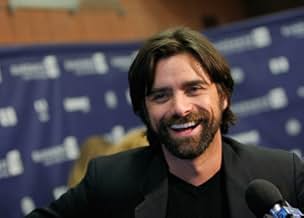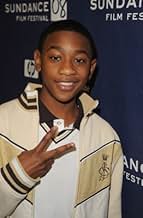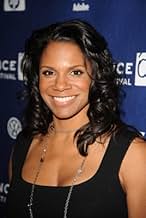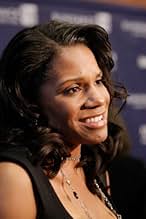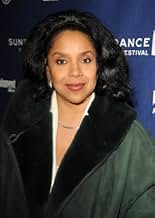IMDb-BEWERTUNG
6,5/10
2207
IHRE BEWERTUNG
Füge eine Handlung in deiner Sprache hinzuAn African-American family struggles with poverty, racism, and inner conflict as they strive for a better way of life. Based on the play by Lorraine Hansberry.An African-American family struggles with poverty, racism, and inner conflict as they strive for a better way of life. Based on the play by Lorraine Hansberry.An African-American family struggles with poverty, racism, and inner conflict as they strive for a better way of life. Based on the play by Lorraine Hansberry.
- Regie
- Drehbuch
- Hauptbesetzung
- Für 3 Primetime Emmys nominiert
- 9 Gewinne & 24 Nominierungen insgesamt
Sean 'Diddy' Combs
- Walter Lee Younger
- (as Sean Combs)
Ron Cephas Jones
- Willy Harris
- (as Ron C. Jones)
Empfohlene Bewertungen
I just seen the 1961 version before watching this TV movie... frankly speaking this version put me to sleep Puff daddy ain't Sidney Poitier all the cast just don't click as well as the original.
A RAISIN IN THE SUN is the 2nd television remake of the 1961 film based on the play by Lorraine Hansberry and the recent Broadway revival about broken dreams that centers on the Younger family, a hard-working black family living in a cramped Chicago tenement in 1959, to whom we are introduced to the day before the family is to receive a $10,000.00 insurance check and the tensions that arise from the plans that the young patriarch of the family has already made for money that really isn't his. Lena Younger (Phylicia Rachad) is a strong,God-fearing woman who has worked as a housekeeper to a white family for years but has decided to retire because of her impending windfall (the check is only coming because of the death of Lena's husband). Walter Lee Younger (Executive Producer Sean "Puffy" Combs)is a chauffeur who wants to use Lena's money to start his own business. Walter's wife, Ruth (Audra McDonald)is a strong-willed woman who finds herself constantly torn between her husband and her mother-in-law, often at the expense of her son Travis(Justin Martin). Beneatha (Sanaa Lathan) is Walter's flighty, free-spirited sister, struggling to find her identity as a black woman, full of more dreams than she can handle, which are further complicated by her relationships with two completely different kind of men. This story first hit theaters in 1961 with Sidney Poiter as Walter Lee, Ruby Dee as Ruth, and Claudia McNeill as Lena. Combs has brought the cast of the highly successful Broadway revival (which won Tony Awards for Rachad and McDonald) to the small screen and aided by the detailed direction of Kenny Leon, has opened up the story for the television screen without losing the story's intensity or intimacy. Phylicia Rachad is nothing short of brilliant, in the performance of her career, as Lena, the proud matriarch struggling to hold her family together and hoping that this money might help. Audra McDonald, who has won 4 Tony Awards for her work in Broadway musicals and won a fifth for this role on Broadway, proves that she is as powerful an actress as she is songstress as she brings a depth and substance to the pivotal role of Ruth that I have never seen before. Sanaa Lathan also offers one of her best performances as the bombastic Beneatha, a walking talking hurricane of emotions struggling to find who she is in a world where she feels like she is suffocating. Sadly, Sean Combs had some big shoes to step into, taking on a role originated by Sidney Poiter and for me, his performance just doesn't work...there is an emptiness to the performance that implies Combs really doesn't understand a man like Walter Lee. Combs also seems to be unaware at times that he is now in front of a television camera and not in a Broadway theater and that certain facets of his performance have to be taken in and controlled, which can be partly blamed on the director I suppose, but this problem only exists with Combs, not his leading ladies. Poitier brought a dignity and maturity to the role of Walter Lee that Combs is missing...he plays the role as a petulant child, diluting a lot of its power. Despite Combs problematic performance, this film stands as a worthy tribute to its predecessors thanks to the mostly effective direction by Kenny Leon and three extraordinary performances from Sanaa Lathan, Audra McDonald, and especially Phylicia Rachad.
This film start slowly and at times is a little dull but this is mainly due to the lacklustre performance of Mr Combes, P Diddy, Puffy whatever. Every other performance is superb and this is what carries the film, however as others have already commented, what could have been an excellent film, with someone else in the lead role, becomes just a good film and I would still recommend it for anyone to watch. Combes performance is just not believable, sure he is moody and unlikeable but you get the feeling that he struggles to move away from his real persona and slips too easily back into being a 90s rapper rather than a black man struggling in 1950s America. It might be worth noting that if you hate the modern trend for films to be littered with foul language, sex and violence then you will love this film because it stays true to the original play in this regard and has resisted the mistake many remakes have made of modernising it and alienating the family audience. So for many reasons I would recommend this film and just think it is a shame another, much better lead actor was not chosen for the main male role.
P-Diddy's performance in the film is P-thetic. Apparently tired of saying the same words night after night on stage has dulled Mr. Combs into a stunned stupor to which his bland expressions and monotone delivery attest. He seems at home with "da Homies" (Willy Harris and Bobo) at "da Club"(The Green Hat) but he can't switch his New York gangsta talk with a Southside Chicago accent. The fact that Willy Harris is a dead ringer for Snoop Dog didn't help. Mama was right; Walter does look (and sound) "like somebody's hoodlum". Mama, by the way, played by Phylicia Rashad, was amazing. She looks younger than other Lena Youngers on screen which is good as Walter is only 35 so Mama is probably not the white haired old lady directors like Daniel Petrie tried to make her look. Besides the youthful look, Rashad gives a very heartfelt performance making me think that Bill Cosby did the world a disfavour by holding her back from honing her serious side. Audra McDonald, in my opinion, is the best performer in the group. As wife Ruth, she really hits home with her every emotion.When she cries, we want to cry with her although at times it seems she's just crying at the atrocious performance by her lesser half, the Puffster. Rounding out the cast is David Oyelowo as the Nigerian Asagai (Oyelowo is, himself, Nigerian) and John Stamos as a handsome Mr. Lindner (alas, the not so handsome John Fiedler is no longer available for the role). I watched this film continually thinking what heights it might have reached if someone more competent was in the Walter role. Maybe they can use Computer Generation to insert Sidney Poitier's performance. That would be great.
There is nothing wrong with remaking and recasting the Lorraine Hansberry masterwork; we shouldn't pay undue fealty to the original cast. I'm sure Olivier's, Jacobi's, and Branaugh's Hamlet would suffer in comparison to the original Burbage performance. Plays are meant to be inhabited by different people as the generations pass. Therefore, there is nothing wrong, in theory, to the making of this version.
This rendition is superior to the 1989 "American Playhouse" performance, which was poorly paced and largely overacted. The female parts are perfectly cast and performed. The same cannot be said, unfortunately, for the male parts.
P. Diddy, or Sean Combs, or whatever name he is going by these days, simply does not have the acting chops to bring out the complexities of the Walter Younger character. Where Sidney Poitier and, to a lesser extent, Danny Glover, were able to grasp hold of the anger and frustration of the man, Mr. Diddy twitches and frowns. He performs as if a lowered head and furrowed eyebrows are the makings of a great performance. I was reminded of Hayden Christianson taking the complex evil of Darth Vader and turning him into a naughty teenager. Combs plays Walter like a street punk.
Sean Patrick Thomas, as George Murchison, fares a little better. He does what he can with what is essentially a superficial and somewhat stereotyped character.
The greatest error is the miscasting of John Stamos as Lindner. He gives the character a harder, more outwardly racist edge than John Fiedler, who created the role. Stamos drips hatred and prejudice just a little too much -- it is easy to ultimately say no to him just to tick him off. Fiedler, working with Hansberry, had a much better grip on the role -- not a man who is outwardly racist, but as one who is sadly misinformed, ignorant (meaning, simply, not understanding), and afraid. Stamos tries to chew up just a little too much scenery.
David Oyelowo, as Joseph Asagai, is the most well cast male in the film, hitting every note required by the character.
The female cast fares far better. Phylicia Rashad recreates and improves upon the role of Lena Younger, breaking the "Mammy"-isms of the earlier performers. Audra McDonald certainly will not usurp Ruby Dee as the definitive Ruth Younger, but does an excellent job in a part that requires an extreme range of emotion.
The greatest revelation in the film by far is Sanaa Lathan as Beneatha. Beneatha is a key character in the play and is relatively ignored in the original, and not particularly well played in the 1989 version. Playing a character substantially younger than she is in real live, Lathan is able to exhibit the hope, anger, childish "know-it-all" attitude and sadness of a young woman in her position. Unfortunately, the screenwriters chose to omit her lovely, sad second-act monologue about her desire to become a doctor; this section was excised in the original film and restored in the American Playhouse version and should have been present here.
Overall, this is a worthwhile film, but imperfect in many ways.
This rendition is superior to the 1989 "American Playhouse" performance, which was poorly paced and largely overacted. The female parts are perfectly cast and performed. The same cannot be said, unfortunately, for the male parts.
P. Diddy, or Sean Combs, or whatever name he is going by these days, simply does not have the acting chops to bring out the complexities of the Walter Younger character. Where Sidney Poitier and, to a lesser extent, Danny Glover, were able to grasp hold of the anger and frustration of the man, Mr. Diddy twitches and frowns. He performs as if a lowered head and furrowed eyebrows are the makings of a great performance. I was reminded of Hayden Christianson taking the complex evil of Darth Vader and turning him into a naughty teenager. Combs plays Walter like a street punk.
Sean Patrick Thomas, as George Murchison, fares a little better. He does what he can with what is essentially a superficial and somewhat stereotyped character.
The greatest error is the miscasting of John Stamos as Lindner. He gives the character a harder, more outwardly racist edge than John Fiedler, who created the role. Stamos drips hatred and prejudice just a little too much -- it is easy to ultimately say no to him just to tick him off. Fiedler, working with Hansberry, had a much better grip on the role -- not a man who is outwardly racist, but as one who is sadly misinformed, ignorant (meaning, simply, not understanding), and afraid. Stamos tries to chew up just a little too much scenery.
David Oyelowo, as Joseph Asagai, is the most well cast male in the film, hitting every note required by the character.
The female cast fares far better. Phylicia Rashad recreates and improves upon the role of Lena Younger, breaking the "Mammy"-isms of the earlier performers. Audra McDonald certainly will not usurp Ruby Dee as the definitive Ruth Younger, but does an excellent job in a part that requires an extreme range of emotion.
The greatest revelation in the film by far is Sanaa Lathan as Beneatha. Beneatha is a key character in the play and is relatively ignored in the original, and not particularly well played in the 1989 version. Playing a character substantially younger than she is in real live, Lathan is able to exhibit the hope, anger, childish "know-it-all" attitude and sadness of a young woman in her position. Unfortunately, the screenwriters chose to omit her lovely, sad second-act monologue about her desire to become a doctor; this section was excised in the original film and restored in the American Playhouse version and should have been present here.
Overall, this is a worthwhile film, but imperfect in many ways.
Wusstest du schon
- WissenswertesPhylicia Rashad's sister, Debbie Allen, played "Beneatha Younger" in the Broadway musical, "Raisin".
- PatzerWhen they are packing up the apartment, Momma is working on putting sticks around a small plant to protect it to wrap it. The number and location of the sticks are not in sync with the timing.
- VerbindungenFeatured in The 60th Primetime Emmy Awards (2008)
Top-Auswahl
Melde dich zum Bewerten an und greife auf die Watchlist für personalisierte Empfehlungen zu.
Details
- Erscheinungsdatum
- Herkunftsland
- Sprache
- Auch bekannt als
- Una sombra bajo el sol
- Drehorte
- Produktionsfirmen
- Weitere beteiligte Unternehmen bei IMDbPro anzeigen
Zu dieser Seite beitragen
Bearbeitung vorschlagen oder fehlenden Inhalt hinzufügen


